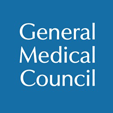Expect moderate peeling for up to 7-10 days post-treatment. This is common and part of the skin renewal process, which leads to brighter, healthier skin.
The number of sessions required can vary based on individual needs and treatment goals. Typically, patients may undergo 2-4 sessions for optimal results, spaced a few weeks apart.
Patients may start to see hair growth or skin texture improvements within a few weeks, with more significant results often visible after a few months as the regenerative processes continue.





